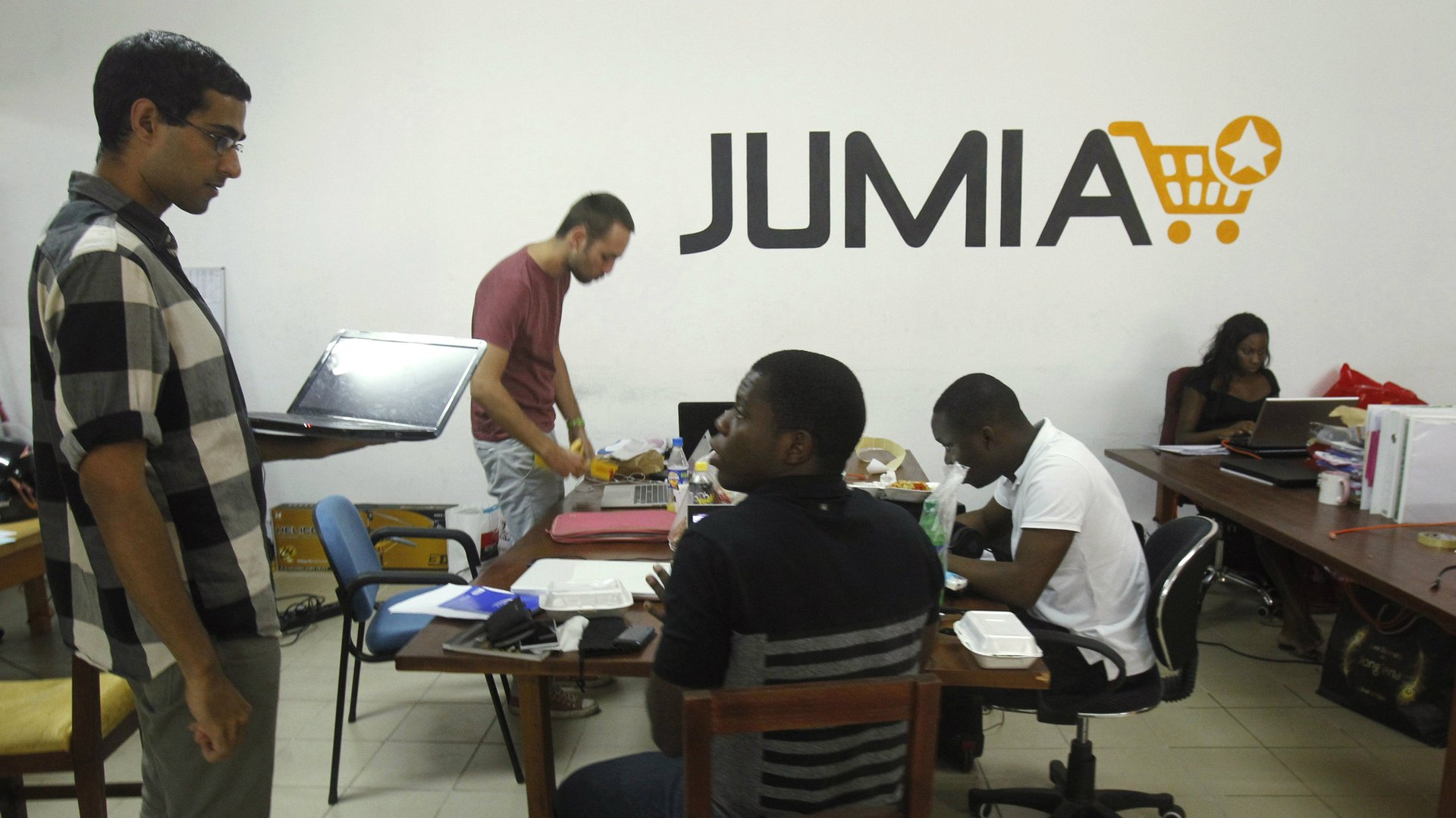Africa’s largest e-commerce company is set to list on the New York Stock Exchange
Reports of an initial public offering (IPO) by Jumia, the pan-African conglomerate of e-commerce businesses, have been finally confirmed but details of its financials do not paint a pretty picture.


Reports of an initial public offering (IPO) by Jumia, the pan-African conglomerate of e-commerce businesses, have been finally confirmed but details of its financials do not paint a pretty picture.
Jumia has filed to launch its IPO on the New York Stock Exchange, documents from the U.S. Securities and Exchange Commission (SEC) show. The intended IPO is a landmark first for e-commerce and tech businesses on the continent. It could also mark a possible exit by Rocket Internet, Jumia’s German parent company, divesting its remaining stake in the company.
Specifics on the IPO details, such as timeline of the listing and share price, are expected to be determined in coming weeks. But it is widely expected Jumia will be Africa’s first tech unicorn—a venture funded company valued at more than $1 billion. It will trade under as JMIA on the NYSE.
As part of its pitch to shareholders, Jumia cites itself as “the only e-commerce business successfully operating across multiple regions in Africa” with four million active customers of December last year.
That status is the result of a reshuffling as several of Rocket Internet’s African online businesses across food delivery, real estate, hotel and flight bookings were reorganized under the Jumia brand in 2016—the same year it reached a billion-dollar valuation after an $83 million investment from insurance company AXA for an 8% stake. It also notes its add-on services including Jumia Logistics, its inventory arm, and Jumia Pay, its payments solution, as added assets.
But its SEC filing documents also show the company’s pan-African model has so far seen hundreds of millions of dollars in losses mounting each year by far exceeding revenue the company has been able to generate. As of Dec. 31 2018, the filings show the company has accumulated losses of nearly $1 billion.
Last year Jumia’s losses widened to $195.2 million on revenue of just $149.6 million. The company, which operates in 14 African countries including Nigeria, Kenya, Morocco and Egypt, is also burning through cash with negative operating cash flows of $159.2 million.
As part of its “Risk Factors” for potential investors it cites the continued losses as a lack of guarantee that it will “achieve or sustain profitability” or “pay any cash dividends” in the foreseeable future. While being transparent about potential risks is standard with S1 filings for initial public offerings, Jumia’s will give some investors pause.
The continued losses are only one of the numerous risk factors the company lists, including political instability and regulatory uncertainty in African markets. The company also claims competition and “more aggressive pricing policies” from rivals including South Africa’s Takealot and Egypt’s Souq.com could negatively impact its business.
Jumia’s IPO will be latest in a string of public listings by Rocket Internet-backed companies as furniture retailer Home24 and food startups Hello Fresh and Delivery Hero have all been listed on the Frankfurt Stock Exchange in the last two years.
Jumia was founded by French entrepreneurs Sacha Poignonnec and Jeremy Hodara, both 38. They each hold just over 2% of the company’s shares.
Sign up to the Quartz Africa Weekly Brief here for news and analysis on African business, tech and innovation in your inbox